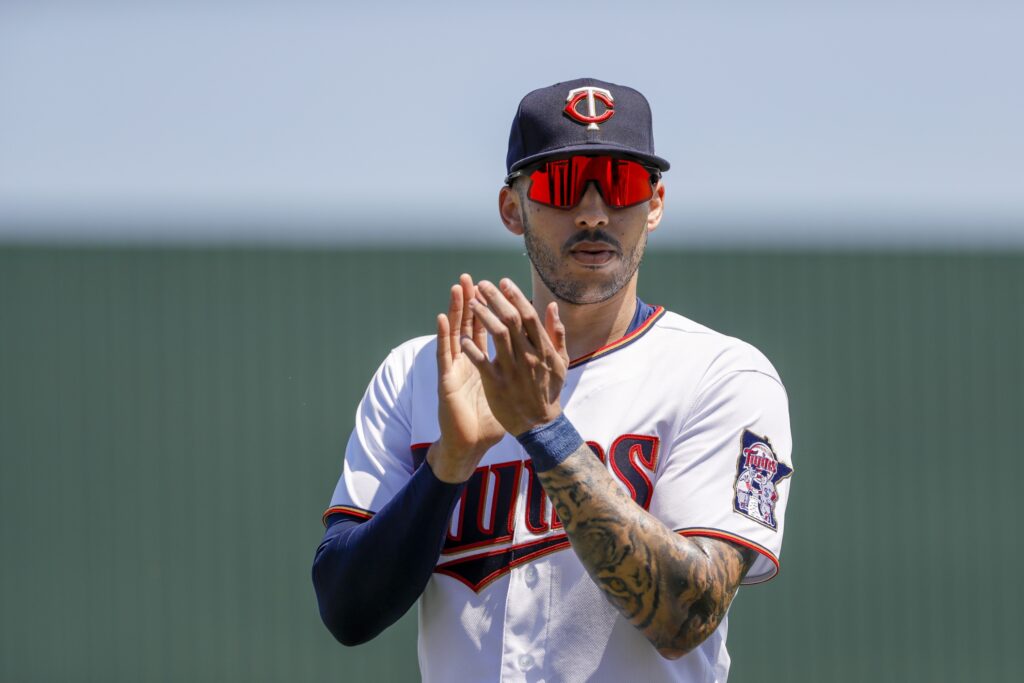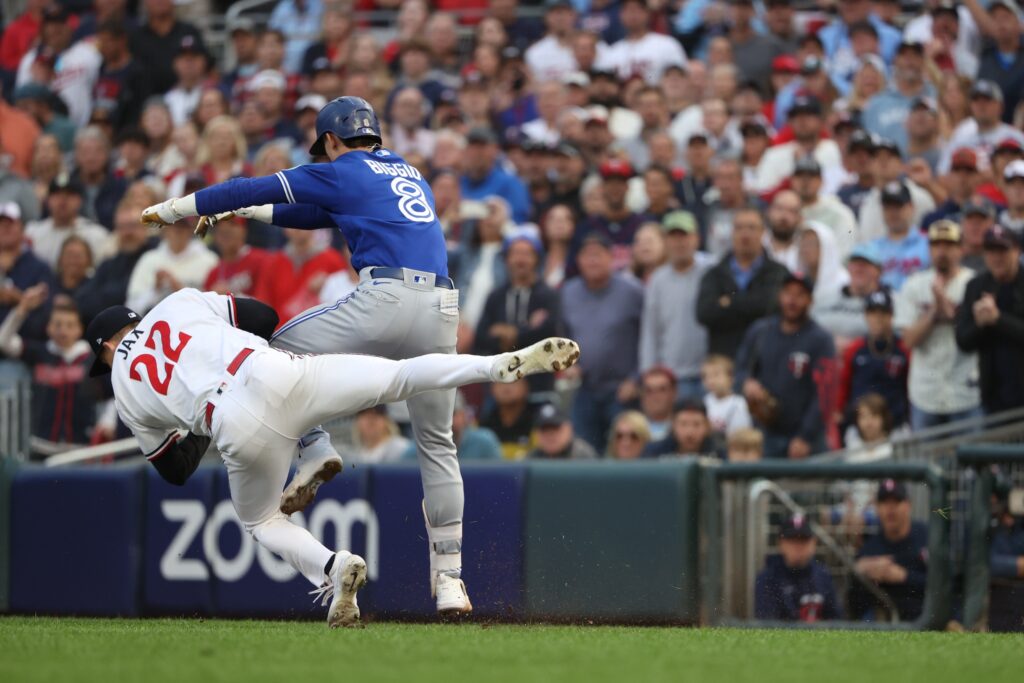The frozen fog that glazed Twin Cities roads into greased lightning Wednesday morning dissipated just as the opportunistic Twins gleefully re-introduced Carlos Correa and melted the permafrost from their petrified offseason.
The bridesmaids of baseball welcomed back their superstar shortstop and free-agent spinster after Correa was rejected by lawyers, physicians and bean counters in New York and San Francisco who got cold feet about long-term commitment.
Now don’t go hanging any American League Central Division banners or purging that 18-game playoff losing streak just yet.
Returning their best player from a disheartening 78-84 season maintains the status quo. A thin starting rotation and their cursed injury history leaves plenty more roster work to be done.
But a franchise tarred by postseason pratfalls, underwhelming acquisitions and diminishing interest deserves a hat tip from its surly fan base after exploiting an unprecedented chance to reunite with an uber-talented player who broke up with them.
The negotiating seas parted wide for the Twins to maneuver back into the Correa sweepstakes during a remarkable game of chicken between MLB’s richest owner and its most powerful agent.
Minnesota steamed ahead to retrieve Correa after Steve Cohen, the Mets’ hedge fund gazillionaire and luxury tax frontrunner, backpedaled from the game’s best available player because of an 8-year-old documented injury that suddenly turned their 12-year, $315-million offer into a toxic asset.
Quite the tabloid annulment for the brash Cohen. He thought he had snatched Correa from the similarly suspicious Giants and stuffed him into Mets fans’ Christmas stockings hours after Correa’s 13-year, $350 million deal collapsed into San Francisco Bay.
Mets doctors were just as spooked by Correa’s surgically repaired right leg as the Giants, who were moments from introducing Correa at a Dec. 14 news conference when word leaked that the desperate NL West contenders balked after his physical.
Correa’s agent, Scott Boras, thought he had found another suitor in Cohen. But talks stalled with New York after the calendar flipped, and suddenly the Twins were back in play.
The middle-market club ultimately bought the 28-year-old Correa’s prime years at a considerable discount from what the Twins had originally offered (10 years, $285 million) and the dump trucks of gold bullion with which the Giants and Mets followed up.
A six-year, $200 million base salary that hedges short-term gains against long-term risk associated with the metal plate Correa had inserted in 2014 after shattering his tibia and ankle sliding into a base as a Class-A prospect.
“One thing I learned throughout the whole process is that doctors have a difference of opinions,” Correa said during his first public comments about the saga Wednesday at Target Field.
“I had a lot of doctors tell me I was fine and I had some who said I wasn’t so fine.”
Boras joined his client on the dais along with Minnesota’s newly minted executive chair Joe Pohlad and executive vice president Derek Falvey, who closed the deal and smiled throughout the dog-and-pony show like the Cheshire Cat.
Falvey acknowledged the Twins were “fortunate” to take an unlikely victory lap, but he wisely did not tap dance on the negotiating graves of his peers in San Francisco or Queens.
Boras, meanwhile, did his best to deflect from the embarrassment of having not one but two $300 million deals blow up in his face by blasting the Giants and Mets medical staffs for panicking and convincing their personnel executives to renege.
“This scenario is about a large separation in the orthopedic community about functional fitness and clinical exam versus looking at an MRI,” Boras huffed.
“It is a dramatic chasm between how some doctors feel and how other doctors feel about the longevity of a player’s performance.”
The Giants and Mets would have guaranteed Correa’s salary into his 40s, a big risk for any position player, especially a shortstop who endures collisions from oncoming base stealers and runners.
The Twins reduced that economic hazard by offering half as many years as the Mets while outbidding them over the first six years of New York’s final offer, helping Boras save face.
There were plenty of smiling faces as Correa donned Minnesota’s new uniform during his second free-agent news conference with the Twins in less than 10 months.
He earned $31.5 million in 2022, the first of a three-year contract that allowed the two-time all-star and platinum glove winner to opt out after one season.
“Last year I felt like I was part of a family – my heart was here,” Correa said.
His brain is in his wallet. Last month, Correa shared Instagram photos of him and his 1-year-old son, Kylo, in an “I Love NY” T-shirt.
He made a business decision to return to Minnesota. No need to apologize. No need to sugarcoat the obvious, either.
Correa played 136 games for the Twins last year. His 22 home runs were the second-most by a Minnesota shortstop. His .836 OPS led the team. Moreover, the 2017 World Series champion has played in six different postseasons with the Astros.
Despite his starring role in Houston’s sign-stealing scandal, Correa is adored in the Twins clubhouse and is the alpha male in a young, productive lineup that had the team in first place most of 2022 before injuries led to a September collapse.
If he stays healthy and reaches certain playing time benchmarks, Correa could earn $270 million through 2032.
So the Twins made a $200 million gamble on the richest contract they’ve ever drafted for a player. One they had to make after Correa fell back in their laps.
Seemingly overnight, a forgettable offseason turned into one we may remember for ages.






